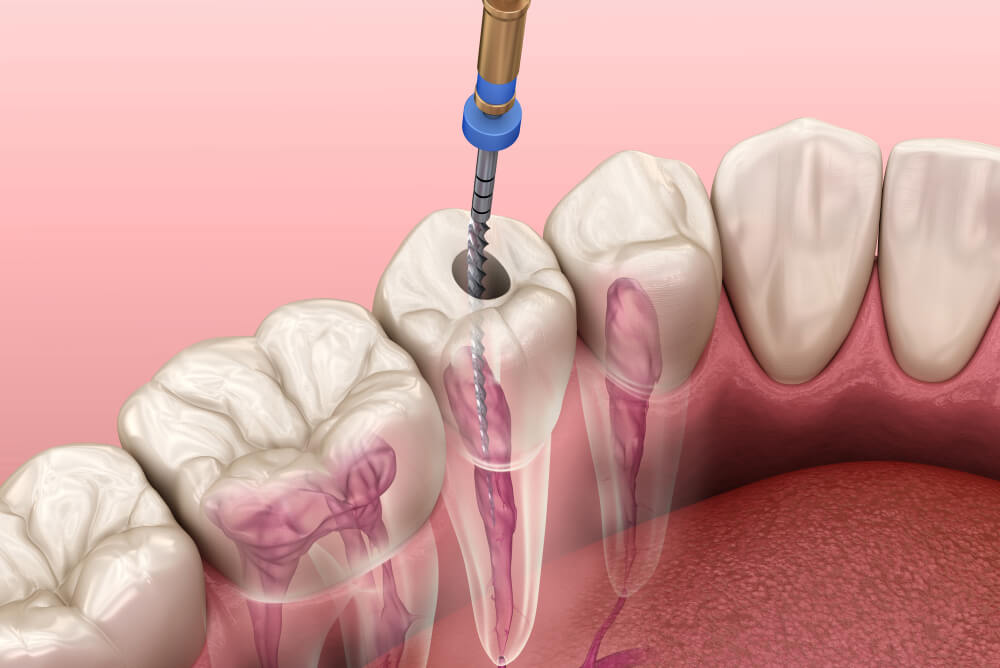Learn how root canals can restore your oral health
Thanks to modern dental technology, root canals are much faster and more comfortable than they were years ago. With their specialized endodontic training, Alex Shklyar, DDS and Madueke Ekoh, DDS offer the most advanced root canal treatments in the Greenbelt, Maryland area. If you have a severe toothache or know that you need a root canal, schedule an evaluation at Greenway Dental Group. Book your visit through the online scheduler, or call the office.
Root Canal Q & A
What happens during a root canal?
A root canal involves removing pulp from deep inside your tooth’s root. The pulp contains nerves, blood vessels, and other tissues. You might need a root canal if the pulp is decayed, or if you have a severely damaged or broken tooth that is causing sensitivity, or is at risk of decaying.
Your dentist starts by drilling a small hole in your tooth to access the pulp after numbing you with novocaine injections. The next step involves clearing away the pulp and shaping the inner root chamber.
If you have an abscess or infection, they may also fill your tooth’s root with antimicrobial solution to destroy any lingering bacteria. This usually is the longest step of the root canal procedure.
Once your tooth is ready, your dentist fills the empty root chamber with a rubbery material called gutta percha. The final step involves filling in the hole with a filling, or getting a crown to cover your treated tooth.
Is a root canal painful?

Getting a root canal is typically no more uncomfortable than getting a filling. Patients sometimes complain of jaw discomfort from keeping their mouths open for so long, rather than about pain from the procedure itself.
Modern root canal treatments involve using advanced tools and imaging systems, which makes them quicker and less invasive. Plus, your dental team at Greenway Dental Group offers an array of sedation dentistry treatments. For example, you can request nitrous oxide (laughing gas) to calm your nerves or fall asleep during the procedure.
If you need stronger sedation, you could be a candidate for oral or intravenous (IV) sedation. These types of sedation options are particularly beneficial for patients who have a difficult time lying in the dental chair for extended periods.
Do I need a crown after a root canal?
Possibly. A crown is usually only essential if the structure of your tooth is compromised. For instance, if it was broken or if your root canal can’t be sealed with a filling, a crown may be essential.
At Greenway Dental Group, you won’t need a second visit to get a permanent crown after a root canal. The team offers CEREC® same-day crowns so that you can leave the office with your new, permanent crown.
Greenway Dental Group offers flexible scheduling for root canals. Schedule your consultation either online or over the phone.


